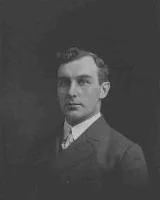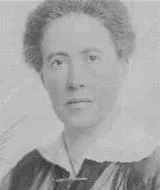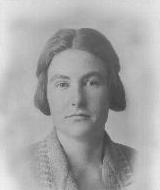History
NEWSPAPER ARTICLE PUBLISHED SATURDAY 12 JUNE 1926
MANLEY’S VILLAGE HALL OPENING BY SIR HARRY BARNSTON MP: A MOVE WITH THE TIMES
Although Manley is a scattered village and situated in a remote but pretty part of Cheshire, it made “up its mind” some eighteen months ago to “move with the times,” with the result that to-day there is a large and attractive village hall. On Saturday the new hall was opened by Major Sir Harry Barnston, M.P. The chairman was Mr A. C. Gladstone.
The scheme was first mooted in October, 1924, and the efforts that have been made to raise the money include a large garden fete held in the grounds of Manley Hall last summer, when £400 was realised. Other small efforts have been made and generous donations have been received. On Saturday the fund totalled over £1970. The chairman of the energetic committee is Mr W. Harrison, while in Miss Armitage a more hard-working secretary could not have been found. For some time Mrs Gladstone was the treasurer and later Mrs A. Haworth. The site, which covers nearly an acre, was given by Mr A. Haworth, and to this generous gentleman the committee is much indebted. In addition to the hall, which is situated on the Tarvin – Frodsham road about half a mile from Mouldworth station, a bowling green and a tennis court is being laid. The ladies in the district have rendered splendid services in helping to swell the building fund, Mrs Stephen Gladstone being a prominent supporter.
THE BUILDING.
The hall is a very attractive building. It is constructed of brick with raven-head brick dressings, and is also white-washed. The interior walls are of brick-coloured with a cream tint, and the roof and the woodwork are treated with brown stain, the rest of the ceiling being white. It is a timbered roof, lighted with dormer windows and windows in the wall. The exterior of the roof is covered with double curved asbestos tiles. The hall is approached by a flight of steps of rustic brick, a portal doorway being made of the same material. The large room will seat about 200, and there are also kitchens, and cloak rooms. Mr Francis Jones, of Messrs Jones and Dalrymple, Manchester, was the architect, Messrs J. G. Davies and Sons, Frodsham, were the builders.
The weather was ideal, and a large crowd gathered at the opening ceremony.
Among those present were Mr W. Harrison (chairman of the committee), Mrs Stephen Gladstone, Capt. and Mrs Harry Ockleston, MissRothwell Taylor, Mr A. Haworth, Mr and Mrs R. Armitage, Miss Armitage, Mr J.G. Davies, Mr R. Holt, Mr and Mrs T. Gleave, Mr and Mrs Charles Pearson, Mrs Myres (Frodsham Vicarage), Mr Edwin Wright, Mr J.K. Wright, Rev. and Mrs Melville White (Ashton Hayes), Mr J. T. Ellison (Claim Farm) and Miss Ellison, Messrs T. and W. G. Carter (Mouldsworth), Mr and Mrs F. Sherlock, Mr W. Wade, Miss Wade, Mr and Mrs McLane, Mr Jefferson, the Rev. A. E. Bartlett (curate, Frodsham Parish Council), Miss Melver, Mr and Mrs Clarke and Miss Clarke, Mr and Mrs Franklin (Mouldsworth), Mr and Mrs Francis Jones (Manchester), Mr T. A. Johnson (Hartford) and Mr John Edwards.
Mr Albert C. Gladstone said he had much pleasure in asking Sir Harry to open the hall. Sir Harry then cut the ribbon attached to the door with a pair of scissors.
Mrs Stephen Gladstone was the first to enter the hall followed by Major Sir Harry Barnston and Mr A. C. Gladstone.
Mr A. C. Gladstone occupied the chair at the proceedings in the hall, and was supported by Sir Harry, Mr W. Harrison (chairman of the committee) and Mr A. Haworth.
Mr A. C. Gladstone thanked Sir Harry for opening the hall. He said he was sure they would be glad to have a few details about the progress of the building. The money had come in very well, and there was a total of £1970 and the committee estimated that that would cover the cost of the building and furniture including a billiard table. That was
A VERY SATISFACTORY STATE OF AFFAIRS
That sum included £78 from the Entertainment Committee, which was used in the purchase of a piano and stool. He thought that they could all congratulate themselves on having raised that large sum of money which was guaranteed to cover all the necessary expenses before they walked into the hall. Although several meetings had been held, they had never expressed any thanks to those who had borne the burden of the work. Mr Harrison and his hard working committee should be mentioned and he need hardly add the name of Miss Armitage, who had acted as secretary. They were indebted to the Entertainment Committee, whose efforts had resulted in the purchase of the piano. The architect had designed a building which was pleasing to the eye, and he was sure they were all grateful to Mr Jones for his efforts. He also expressed thanks to Messrs Davies and Sons, the builders, who had succeeded in getting the building ready for the ceremony in a comparatively short space of time and everything went to show that their work was thoroughly well done. He might mention that they had had help in terms other than money, and which was not less valuable. A great deal of labour in levelling the site was given free and practically all the carrying was done free by the farmers of the district. What that represented in money he did not know, but if they had had to pay for it they would have been lucky to get off with a bill of £50. They were very grateful for the spontaneous help, which indicated the interest taken by the district in the hall. That was a good augury for the future, and showed that it would realise the objects for which they had built it. It would prove to be a good meeting place where they would get to know each other better. (Applause)
Major Sir Harry Barnston, who had a warm reception, said how delighted he was to be there. A great need existed in our country districts for buildings of that sort. He gave it all the support he could, for he knew it would prove a great benefit to those who used it, and everybody in the neighbourhood would use that hall.
Primarily that hall would be a place of amusement and of recreation for young and old.
Secondly that place would be A PLACE OF SELF-IMPROVEMENT.
Thirdly, that place would have a tendency to help them to forget those things which separated them and remember and emphasise those things which unite them. It must be confessed that one of the things which separated them were things which he had constantly to be engaged in – politics.
What a blessing it would be to know that politicians would cease to trouble them and what a blessing for those who tried to speak. As regarded those things which united them, there was love of their country, love of their Empire, and the determination that liberty, justice and opportunity should be found in every nook and corner of the land we loved so well. They were all indebted to Mr A. Haworth, who had given the land. (Hear, hear) He congratulated them not only upon having brought that project to a successful conclusion, but having produced such a charming building. He wished them good luck and prosperity. He felt sure that they had a career of usefulness in front of them. He had much pleasure in declaring the hall open. (Loud applause)
Mr W. Harrison proposed a vote of thanks to Sir Harry Barnston. Mr Harrison also thanked Mr Gladstone for taking the chair, and for the splendid work he had done for that hall. The Gladstone family had done more than other people knew. It lay with the people of Manley and district to make that hall a success. (Applause)
Mr A. Haworth seconded the vote of thanks. He said that Mrs Gladstone was the main-spring of that hall. Their efforts had been made to enable men and women, boys and girls to spend their leisure wisely and well. (Hear, hear.) Their hope was that all dwellers in that district would give the hall their support. (Applause)
The vote was carried with acclamation.
Sir Harry responded.
Mr A. C. Gladstone, in thanking the meeting, said that he had done very little. He had only taken the chair at various meetings. It had been noticeable to him how the interest in those meetings had increased as each one was held. At the first meeting they had it was difficult to get anyone to express an opinion, without they murmured something about a tin hut. Further things were needed. There was a tennis court and a bowling green and a screen installation. Outdoor sports should be available at the earliest possible moment. (Hear, hear.)
SALE OF WORK
A sale of work was held during the afternoon in a marquee erected near the hall. Miss Armitage was in charge of the arrangements. The stallholders were Mrs Armitage, Mrs Haworth, Mrs Pearson, Mrs Franklin, Miss Stewart, Miss Clarke, Mrs Sherlock, Miss Mellon, Mr Prince and Mrs McLane.
Tea was served in the hall, and later in the evening dancing was enjoyed.
Mr Alfred Haworth
Mrs Bessie Haworth
Hilary Haworth, in whose memory the Parish Field was donated to the village



